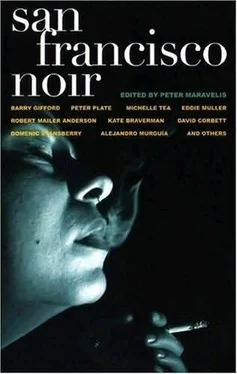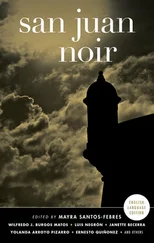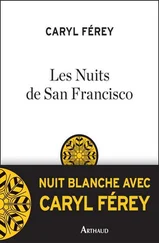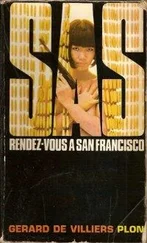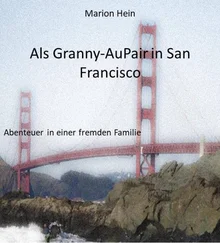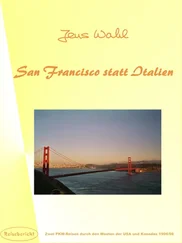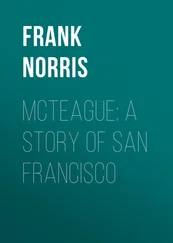“When Mama and I got home, we found out my father was dead. I asked Mamacita, Is Papa damned ? No se, she said, I don’t know .”
“I heard that after I died,” said Ray, “there was a church created in my name. The Church of Ray Sparks.”
“You coulda been a saint, Ray,” said Vermillion, “but instead you was a fool.”
“I’d like to’ve gone to the Church of Ray Sparks, shown up with nobody knowing I was coming. Got up in front of the choir and sung, ‘He’s My Friend Until the End.’”
“There ain’t no such church,” said Revancha.
“Heard there was.”
“The devil got your ear, son,” said Vermillion, “way he go about flatterin’ folks. He do that. Vain man fallin’ for the devil’s malarkey, all that is.”
“What you had to go smackin’ me around like that for, anyway?” asked Revancha. “Use me so bad.”
“Standin’ in satan’s shoes,” said Vermillion, “even back then.”
“Man spoke the truth,” said Ray.
“What man?” asked Revancha.
“One you saw in church, stole all the candles. No place to hide.”
“John the Baptis’,” said Vermillion.
“I know him, I know that man.”
“How could you?” asked Revancha.
“Look at him, sugar, a child of darkness. All the devil’s children the same. Ask him can he sing, Revancha. Go on.”
“Can you sing, Ray?”
“’Course I can sing.”
“Tell him go ahead and try,” said Vermillion.
“Sing, Ray, sing ‘He’s My Friend Until the End.’”
Ray opened his mouth to sing but no sound came out. He tried again with the same result.
“I can’t.”
“The Lord giveth and the Lord taketh away,” said Vermillion. “You ain’t got no gift left, Mr. Church of Ray Sparks.”
Ray got up and walked away.
“Damn, Miz Chaney,” said Revancha, “that’s hard.”
“He ask for it.”
Revancha began to cry.
“Only time I ever have an orgasm,” she said, “is when I imagine the man doin’ me’s the one dressed in rags come in the church the day my father died.”
“God bless you, girl,” said Vermillion.
“God bless you, too, Miz Chaney.”
PART II. In Memoriam to Identity
THE NEUTRAL ZONE BY KATE BRAVERMAN
Fisherman’s Wharf
Zoë and Clarissa meet at irregular intervals at Fisherman’s Wharf. This is the neutral zone. The landscape of perpetual unmolested childhood. The carousel spins in predictable orbits and the original primitive neon alphabet does not deviate. These hieroglyphics are permanent and intelligible in all hemispheres and dialects. No translation is necessary. The carousel does not require calculus, rehab, or absolution. No complications with immigration or the IRS. Just buy a token.
“I’m here,” Zoë says from her cell phone.
“At the wharf?” Clarissa must clarify the conditions.
“Little anemic waves at my feet. Corn dogs that give you cancer. Old men catching perch with so much mercury they explode as they reel them in,” Zoë reports.
“What color is the water?” Clarissa asks.
“Last-ditch leukemia IV drip blue,” Zoë decides.
“Half an hour,” Clarissa assures her. “I’m coming.”
Zoë has no interest in who Clarissa will abandon or strand at a conference table, restaurant, or health club. No callbacks, a medical emergency, cancel everything, Clarissa will inform her staff. It’s a day for experimental time travel.
They meet episodically. Conventional friendship, with its narrative of consensual commitments and behaviors, has proved too intimate and demanding. Between them are houses never seen, husbands dead or divorced, known only by anecdote or photograph. Entire strata of their lives are less than footnotes. Years passed when they did not know one another’s addresses or current last names. Decades when they could have been driftwood to one another, vessels lost at sea. A drowned stranger, perhaps, why bother?
“This litany of blame is becoming tedious,” Zoë once recognized.
“Human perimeters are collective background razor wire. We’re too hip for that shit,” Clarissa responded. “It’s residual static from a Baptist radio broadcast in Mississippi. It’s irrelevant and obsolete.”
“We’ll bite it off with our teeth,” Zoë offered. “Napalm it. Grenade launchers and M-16s. Tec-9s. We’ll have our own Cultural Revolution. We’ll go post-modern, but fully armed.”
“We’ll invent rituals appropriate for our circumstances. We’ll whisper endearments while strolling the killing fields,” Clarissa was enthusiastic. “We’ll crawl our Ho Chi Minh trail, hand-in-hand, trusting each other with our lives.”
“But we’ll abide by the Geneva Convention,” Zoë prompted. “Despite our emotional residue.”
“Directed psychological evolution. It’ll be more brutal than weight training,” Clarissa agreed. “But we’ll become better human beings.”
“We’ll redefine and transcend ourselves,” Zoë said.
It was an earlier autumn on Fisherman’s Wharf. It was bluer than Maui, bay studded with cobalt that looked charged, technologically modified. Zoë had lived two years without electricity in a shack on a nameless river of red orchids in the jungle near Hana. She wasn’t in contact with Clarissa then. Clarissa probably didn’t know there were sea-sons in Maui, too. A faint reddening, a moistening, and the mosquitoes went in temporary remission.
“I like it conceptually. But let’s go further,” Clarissa suggested. “We’ll be molecular. Just strands of light from one radiance to another.”
“Should we reject linearity entirely?” Zoë asked. “Sporadic moments of illumination in extreme altitudes requiring oxygen masks?”
“Discreet and unpredictable meetings with spectacular voltage. We’ll communicate by blowtorch,” Clarissa replied. “We’ll wear asbestos jackets.”
A process of accommodation and evolution was plausible, they agreed. True, they had failed the traditional strategies of giving and receiving. But the standard methods by which one registers recognition and regret do not apply to them. They would have a pact, an armistice, like aggressive radical improvisational surgery. Their psychiatrists were cautiously optimistic. The possibility of malignant complications was an acceptable risk. Then they had shaken hands.
Now Zoë sees Clarissa. She is exiting a black Lincoln town car, wearing her standard business outfit-aerobics pants and jacket, Gucci sunglasses and Giants baseball cap. It’s the camouflaged movie star look designed to create the impression that you’re attempting to be incognito. Clarissa is carrying not a gym bag, which would be appropriate and predictable, but a Chanel purse with leather quilting and gold braid handles. It’s the uniform the narcissistic personality disorder dictates.
They kiss on each cheek. “You forgot my birthday,” Clarissa begins. She dismisses the car and driver with a hand gesture.
“I didn’t sign on as a soccer mom. I don’t decorate for holidays. I don’t bake or send thank-you cards. I don’t answer the phone. I throw away personal mail. You know this,” Zoë reminds her.
“Don’t you go to bed before Thanksgiving and not get up until after Valentine’s Day?” Clarissa’s voice is light.
“That was my mother,” Zoë says. “I simply leave the country at appropriate junctures.”
Actually, Zoë is fond of Christmas in Southeast Asia. Ornately decorated pine trees in the air-conditioned hotel lobbies like vestiges from another planet. Bamboo balconies draped in green velvets, antique brocades, and holly wreaths. More fetishes. And Christmas carols rendered in versions so mangled by distance and erroneous translation they’re almost tolerable. Rivers smell of rotting vegetables, petrol, wood cooking fires, and hunger. Air is layers of decaying prayers that remind her of a satellite losing orbit, falling down not as metal but as streams of origami. In Bangkok, in December, it is 103 degrees.
Читать дальше
